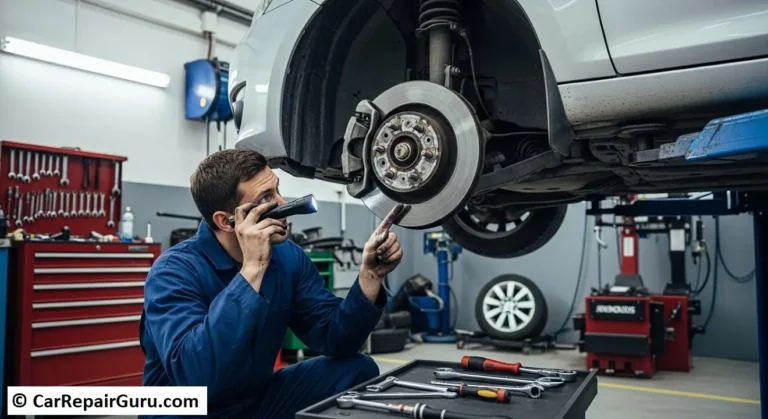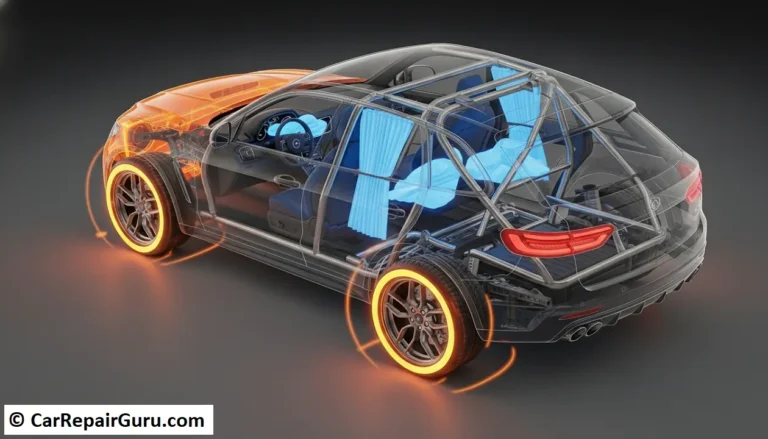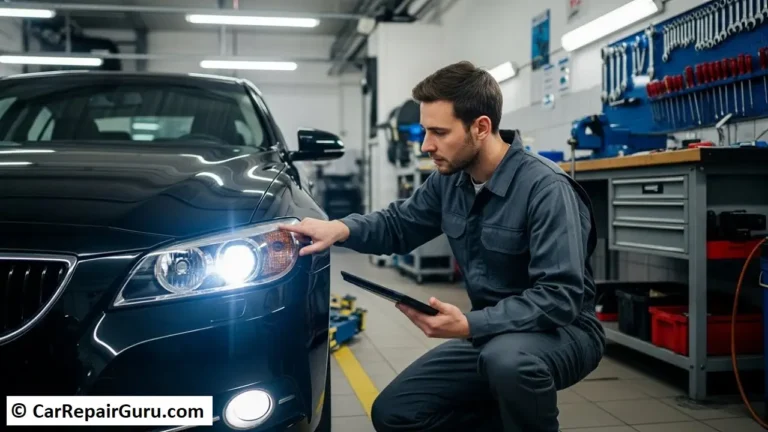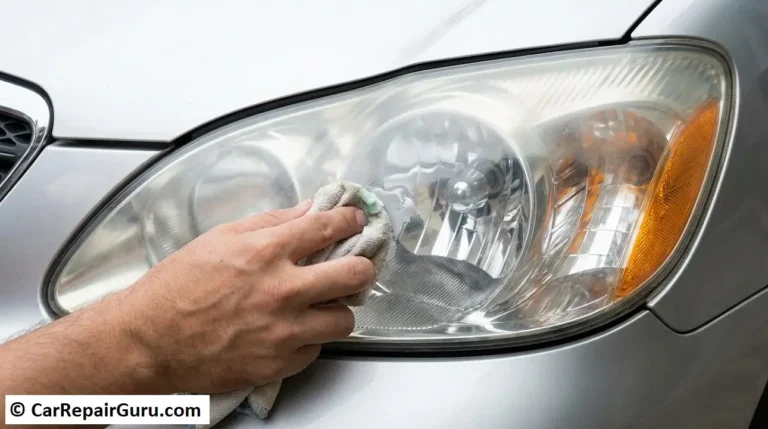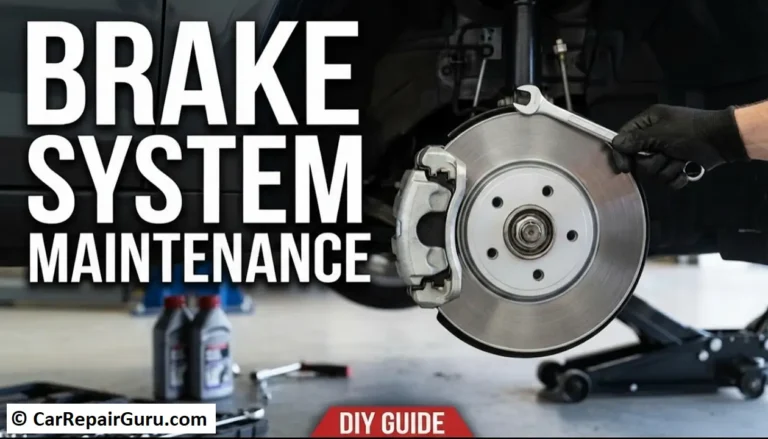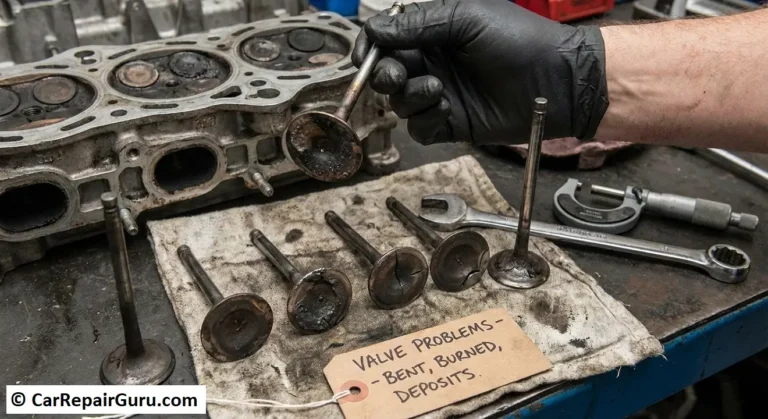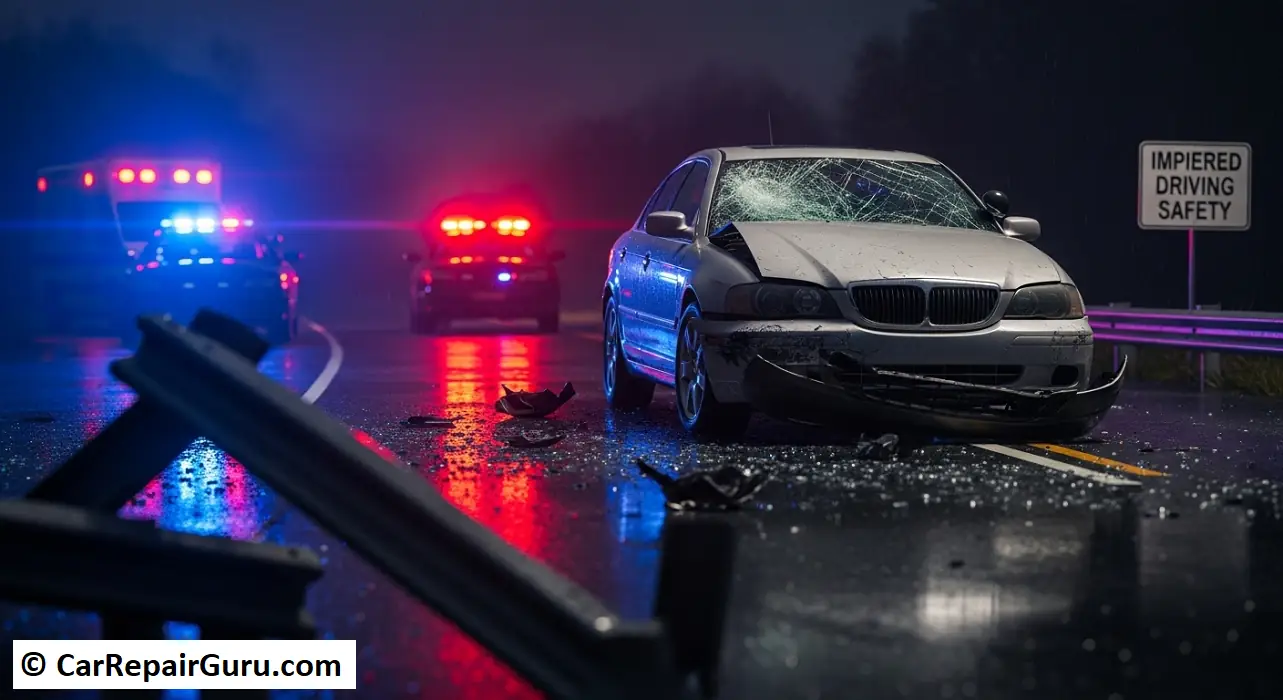
As a responsible car owner, you know that safety is about more than just checking your tire pressure or changing your oil. True car safety extends to the single most important component of any vehicle: the driver. While we invest in good brakes and fresh tires, one of the biggest and most preventable risks to your safety, your vehicle, and your future is driving under the influence (DUI).
The consequences of impaired driving go far beyond a simple traffic ticket. They can lead to devastating accidents, catastrophic financial loss, and the complete loss of your driving freedom. This guide is here to cut through the confusion. We’ll break down what impaired driving really means, how it physically affects your ability to control your vehicle, and the severe, car-related consequences you need to understand. This isn’t about scare tactics; it’s about providing the knowledge you need to protect your car, your passengers, and yourself.
- What “Impaired Driving” Really Means for a Driver
- Impairment from Alcohol
- Impairment from Prescription & Over-the-Counter Medication
- Impairment from Illegal Drugs
- How Impairment Physically Affects Your Ability to Control Your Car
- Delayed Reaction Time
- Reduced Coordination
- Impaired Judgment & Risk-Taking
- Vision Problems
- The Real-World Consequences for Your Car and Your Wallet
- Immediate Vehicle Impoundment
- Mandatory Ignition Interlock Device (IID)
- Skyrocketing Car Insurance (The SR-22)
- Long-Term License Suspension
- The Hidden Financial Shock: How a DUI Impacts Your Career and Ability to Afford Your Car
- Risk to Your Employment
- The Total Cost Breakdown: A Five-Figure Problem
- Vehicle Technology vs. Impaired Driving: Can Your Modern Car Save You?
- The Myth of ADAS as a Safety Net
- The Future of Prevention: Passive Alcohol Detection
- Proactive Safety – Smart Strategies and Sober Driving Tips
- Responsible Driving is the Best Vehicle Maintenance
- Frequently Asked Questions
- How long does a DUI affect my car insurance rates?
- What exactly is an Ignition Interlock Device and how does it work?
- Can I really get a DUI from my prescription allergy medicine?
- What happens to my car right after I’m pulled over for a DUI?
- Can a friend or family member drive my car if it has an Ignition Interlock Device?
What “Impaired Driving” Really Means for a Driver
When most people hear “DUI,” they immediately think of alcohol. While that’s a major part of the picture, the legal and practical definition of impaired driving is much broader. It means operating a vehicle when your mental or physical abilities are compromised to the point where you can no longer drive like a sober, cautious person. This impairment can come from many sources.
Impairment from Alcohol
This is the most common cause of a driving under the influence charge. To standardize safety, every state has set a legal limit for Blood Alcohol Content (BAC). For most drivers, this limit is 0.08%. This isn’t an arbitrary number; it’s a data-backed threshold at which critical driving skills are known to be dangerously compromised.
Impairment from Prescription & Over-the-Counter Medication
This is a critical, often-overlooked aspect of car safety. Many lawfully prescribed and common over-the-counter drugs can make you an unsafe driver. Medications for anxiety (e.g., Xanax), sleep aids (e.g., Ambien), strong painkillers, and even some allergy or cold medications that cause drowsiness can significantly slow reaction times and cloud judgment. Always read the warning label. If it says “Do not operate heavy machinery,” remember that your car is heavy machinery.
Impairment from Illegal Drugs
Substances like marijuana, cocaine, and others severely degrade the motor skills, perception, and decision-making required for safe driving. The effect on coordination and reaction speed can be just as dangerous, if not more so, than alcohol. The bottom line for impaired driving safety is simple: the legality of the substance doesn’t matter. What matters is whether it compromised your ability to safely control your vehicle.
How Impairment Physically Affects Your Ability to Control Your Car
An impaired driver isn’t just a legal risk; they are a mechanical liability. Alcohol and drugs systematically dismantle the physical skills required to operate a two-ton machine at high speeds.
Delayed Reaction Time
This is the most dangerous effect. An alert driver might take about 1.5 seconds to perceive a hazard and apply the brakes. An impaired driver’s reaction time can easily double. At 60 mph, that extra 1.5 seconds means your car travels another 132 feet before you even start braking—more than enough distance to turn a near-miss into a serious collision.
Reduced Coordination
Smoothly steering through a curve, keeping your vehicle centered in its lane, and applying gentle pressure to the gas and brake all require fine motor skills. Impairment causes jerky, erratic movements and over-correction. You might see a driver drifting out of their lane and then swerving back too sharply. This lack of smooth control is a classic sign of an unsafe driver.
Impaired Judgment & Risk-Taking
Your brain is your car’s central computer. Impairment corrupts its software, leading to terrible decisions. You might misjudge the speed of an oncoming car when making a turn, think you can beat a yellow light, or follow the car in front of you too closely. These are not just bad habits; they are symptoms of a brain that can no longer accurately calculate risk.
Vision Problems
Alcohol and some drugs can cause blurred vision, reduce your peripheral awareness (tunnel vision), and slow your eyes’ ability to adjust to the glare of oncoming headlights. At night, when visibility is already reduced, these effects are a recipe for disaster.
The Real-World Consequences for Your Car and Your Wallet
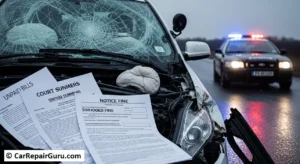
A DUI isn’t a problem you solve and walk away from. The consequences are designed to be long, expensive, and directly tied to your vehicle and your privilege to drive it.
Immediate Vehicle Impoundment
The very first consequence is that you lose your car. It will be towed from the scene and locked up in an impound lot. To get it back, you’ll have to pay hundreds of dollars in towing and administrative fees, plus a daily storage fee that accrues every single day your vehicle sits there. The vehicle impoundment bill alone can be a significant financial hit before any court case even begins.
Mandatory Ignition Interlock Device (IID)
This is one of the most serious DUI consequences for a car owner. An Ignition Interlock Device (IID) is a breathalyzer that is professionally installed and wired directly into your car’s ignition system. To start your car, you must blow into the device and register a sober reading. You’ll also be required to provide breath samples at random intervals while driving. You must pay for the installation, a monthly lease and calibration fee, and the eventual removal. It’s an expensive, embarrassing, and constant reminder of your mistake.
Skyrocketing Car Insurance (The SR-22)
After a DUI, your insurance company will label you a high-risk driver. To legally insure your car, you will be required to have your insurer file an SR-22 insurance certificate with the state. This isn’t a type of insurance, but rather a “scarlet letter” for your driving record, proving you meet the minimum liability coverage. The result? Your insurance premiums will skyrocket, often tripling or quadrupling for three to five years. This can cost you thousands of extra dollars.
Long-Term License Suspension
The most fundamental consequence is the loss of your license. Without it, your car becomes a very expensive driveway ornament. This impacts every part of your life, from commuting to work to simple errands, forcing you to rely on others or costly alternative transportation.
The Hidden Financial Shock: How a DUI Impacts Your Career and Ability to Afford Your Car
The costs mentioned above are just the beginning. The financial shockwave from a DUI can cripple your income, making the very idea of affording car payments, insurance, and fuel a struggle.
Risk to Your Employment
Many careers are immediately jeopardized by a DUI. If you drive for a living (sales, delivery, trades), losing your license means losing your job. But it goes further. Many companies have policies against employing individuals with a recent DUI, even for office jobs, due to liability and insurance concerns. Furthermore, those with professional licenses—like nurses, realtors, pilots, or financial advisors—can face a board review that could result in the suspension or revocation of their professional license.
The Total Cost Breakdown: A Five-Figure Problem
When you look at a DUI like a car owner looks at the “total cost of ownership,” the numbers are staggering. A single, first-time DUI can easily cost between $10,000 and $20,000 when you add it all up:
- Court Fines & Fees
- Substantial Attorney Fees
- Towing and Vehicle Impoundment Costs
- Ignition Interlock Device Installation and Monthly Fees (~$1,000-$3,000 over the term)
- Massive SR-22 Insurance Hikes (~$3,000-$8,000+ extra over 3-5 years)
- Mandatory Alcohol Education Program Fees
- Lost Wages from Missed Work
- Alternative Transportation Costs
This is a financial hole that can take years to climb out of, all for a single, preventable mistake.
Vehicle Technology vs. Impaired Driving: Can Your Modern Car Save You?
With all the amazing technology in modern cars, it’s easy to wonder if it can protect you from a mistake. Can your car’s safety features compensate for impaired driving? The answer is a definitive and resounding no.
The Myth of ADAS as a Safety Net
Advanced Driver-Assistance Systems (ADAS) like lane-keep assist, adaptive cruise control, and automatic emergency braking are incredible feats of engineering. However, they are designed to assist an alert and engaged driver, not replace one. An impaired driver’s poor judgment and slow reactions can override these systems, creating a false and deadly sense of security. You might ignore the lane departure warning or make an erratic steering correction that the system can’t fix. Relying on ADAS when you are impaired is a gamble you can’t afford to take.
The Future of Prevention: Passive Alcohol Detection
The future of car safety is moving towards prevention. New federal regulations are paving the way for all new vehicles to eventually be equipped with passive alcohol detection systems. This technology could analyze a driver’s normal breath as they’re in the car or even use touch sensors on the steering wheel or start button to detect a BAC over the legal limit. If a driver is impaired, the vehicle simply won’t start. This is the next evolution in built-in safety, much like seatbelts and airbags became standard.
Proactive Safety – Smart Strategies and Sober Driving Tips

The best way to deal with the consequences of a DUI is to never face them in the first place. These proactive sober driving tips are simple, effective, and just plain smart.
- Plan Your Ride Home First: Before you leave the house, before you have your first drink, make a plan. Deciding how to get home when your judgment is already clouded is a recipe for a bad decision.
- Utilize Ridesharing and Taxis: The cost of an Uber, Lyft, or taxi is insignificant compared to the five-figure cost of a DUI. It is the cheapest “insurance” you can ever buy.
- The Designated Driver Commitment: It’s a classic for a reason. Take turns with a group of friends being the designated driver. It’s a pact of responsibility that ensures everyone gets home safely.
- Understand Your Medications: Make it a habit to talk to your doctor or pharmacist. Ask them directly: “Is it safe for me to drive while taking this?” Be your own safety advocate.
Responsible Driving is the Best Vehicle Maintenance
Ultimately, the choices you make behind the wheel are just as critical to your car’s longevity and safety as any maintenance you perform under the hood. You can have the best brakes in the world, but they’re useless if the driver’s brain is too slow to use them. Driving under the influence is a preventable choice with devastating consequences for your freedom, your finances, and your vehicle. Protect your investment, your future, and the safety of everyone on the road. Always drive sober.
Frequently Asked Questions
How long does a DUI affect my car insurance rates?
Typically, you will be required to have an SR-22 for 3 to 5 years. Even after the SR-22 requirement ends, the conviction can stay on your record and affect your rates for several more years. Expect to pay significantly higher premiums for the better part of a decade.
What exactly is an Ignition Interlock Device and how does it work?
It’s a small device, about the size of a cell phone, that’s professionally wired into your car’s electrical system. To start the car, you must blow into it for a few seconds. It analyzes your breath for alcohol. If your BAC is below a pre-set low limit (e.g., 0.02%), the car will start. If not, it remains locked.
Can I really get a DUI from my prescription allergy medicine?
Yes, absolutely. If a legally prescribed or over-the-counter medicine impairs your mental or physical abilities to the point that you cannot drive safely, you can be arrested and charged with a DUI. The key is impairment, not legality.
What happens to my car right after I’m pulled over for a DUI?
Your car will be towed from the scene and secured in an official impound lot. You are responsible for paying all the associated costs, which include the initial towing fee plus a daily storage charge that accrues every day. These vehicle impoundment fees can easily cost hundreds of dollars and are an immediate expense you face long before any court appearance.
Can a friend or family member drive my car if it has an Ignition Interlock Device?
Yes, but you are taking a significant risk. Any person driving your car must use the Ignition Interlock Device correctly, passing every breath test. As the person mandated to have the device, you are held responsible for every breath sample recorded. If your friend fails a test, it is registered as a violation against you, which can result in serious consequences.
